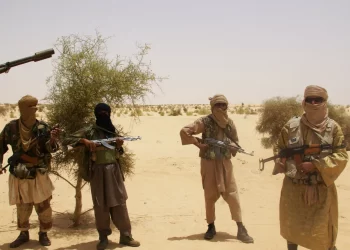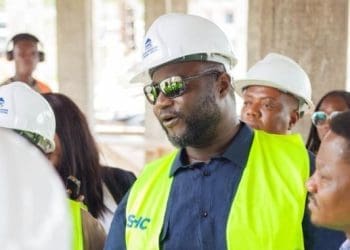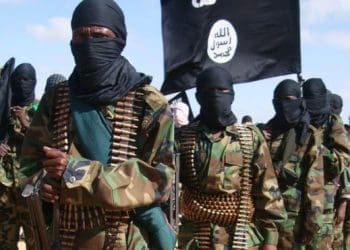President John Dramani Mahama has warned the world against normalising cruelty, hatred, xenophobia, and racism, stressing that such tendencies threaten the very fabric of humanity at a time when global cooperation is desperately needed.
Addressing the 80th session of the United Nations General Assembly (UNGA) in New York, the Ghanaian leader used his platform to challenge entrenched inequalities, demand urgent climate action, and call for sweeping reforms of the international system.
Mahama’s caution came as he reflected on the state of global discourse in the digital age.
He lamented that while the Internet, social media platforms, and Artificial Intelligence appear to connect people, they often deepen division instead.
“They offer us the illusion of connectivity, when in fact they reinforce isolation by using algorithms that ensure we do not receive new ideas and perspectives, but rather more of the same. We are served alternative facts and manipulated images, making it easier to disseminate disinformation and sow seeds of division,” he told the Assembly.
Drawing on history, Mahama compared the UN to the town squares and courtyards of old cities, where communities once gathered for meetings, celebrations, trials, and elections.
Those spaces, he said, brought people together and nurtured unity. Today, he argued, the United Nations must protect its role as the “modern town square” that keeps nations bound as a global community.
Climate refugees and the Global North’s responsibility
The former Ghanaian president issued some of his sharpest words on climate change, telling Western nations that the migrants they so often complain about are, in reality, climate refugees from the Global South.
He accused the Global North of being responsible for 75 percent more greenhouse gas emissions than poorer regions, even though the consequences of climate change hit the South far harder.
“So, when the desert encroaches and our villages and towns become unlivable, we are forced to flee,” Mahama declared.
He revealed that 12 million people had already been displaced, underscoring that migration cannot be divorced from the realities of climate devastation.
He insisted that just as many countries quickly rallied to aid Ukrainian refugees, the same compassion must be extended to those fleeing from Africa, Asia, and Latin America.
“Let’s dispense with euphemisms and dog-whistles and speak frankly. It’s not a mystery that when leaders of Western nations complain of their migration problems, they are often referring to immigrants from the Global South,” he said.
Migrants as builders, not invaders
Mahama sought to humanise the debate on migration, invoking the words of Somali-British poet Warsan Shire, who famously wrote: “No one puts their children in a boat unless the water is safer than the land.” He urged the world to abandon cruelty and prejudice in discussions about migration and instead acknowledge the immense contributions of migrants.
“When we speak of migrants, we speak of Maame Ewusi-Mensah Frimpong, a judge on the US District Court in California, the first Black female judge on any of the state’s four federal district courts, born to Ghanaian immigrant parents. We speak of Peter Bossman, a Ghanaian doctor who became the first Black mayor in Slovenia and Eastern Europe. We speak of T-Michael, the Ghanaian-Norwegian designer, and of course, the late Kofi Annan, Nobel Peace Prize laureate and former UN Secretary-General. These are people who have brought great distinction to the countries that they call home. These are not invaders or criminals,” Mahama said.
He emphasised that Africa is not a burden but a catalyst for human potential, development, and global reform.
UN reform and global justice
Turning to governance of the world body, Mahama repeated Africa’s long-standing call for permanent representation on the UN Security Council, including veto power.
He described the current structure as outdated and unjust, given that since 1945, the number of member states has quadrupled, yet power remains concentrated in the hands of five countries.
“If the UN is truly based on the sovereign equality of all its members, then Africa must have at least one permanent seat on the Security Council. No single nation should be able to exercise an absolute veto to serve its own interests in a conflict,” he stressed.
He reminded the Assembly that Nelson Mandela had made a similar plea three decades ago and asked pointedly: “If not now, then when?”
Mahama also called for a reset of the global financial architecture, describing it as rigged against Africa. He demanded a greater voice for the continent in multilateral financial institutions.
Calls for global solidarity
Beyond structural reforms, Mahama urged for solidarity on pressing humanitarian and political crises. He condemned ongoing atrocities in Gaza, saying: “It doesn’t matter what you call it: if it looks like a duck, swims like a duck, and quacks like a duck, well then, it must be a duck. The crimes in Gaza must stop.”
He drew attention to Sudan’s devastating conflict, described by the UN as the world’s largest humanitarian crisis, and announced Ghana’s intention to table a motion recognising the transatlantic slave trade as the greatest crime against humanity. Reparations, he argued, were long overdue for the millions of Africans enslaved, colonised, and dispossessed of their land, wealth, and cultural heritage.
On Cuba, Mahama called for the removal of the longstanding blockade, recalling the solidarity of Cuban soldiers who fought alongside Africans against apartheid.
“We seek to be friends of all and enemies to none,” he said, echoing Ghana’s founding father, Kwame Nkrumah.
Africa’s path forward
Mahama warned that global insecurity, rising defence budgets, and sharp cuts in development aid—40 percent since July 2024—posed grave risks for Africa.
In response, he argued that African nations must assert sovereignty over their natural resources to raise the funds needed to ensure citizens’ well-being.
He also highlighted Ghana’s 24-Hour Economy Initiative as an example of bold domestic reform designed to boost trust in governance and accelerate inclusive growth.
In closing, Mahama reminded the world of the original spirit of the United Nations: to be the space where nations gather, air grievances, and work together for peace. “It has never been more critical for us to protect this one space that holds the world’s nations together as a community,” he urged.
From climate refugees to Security Council reform, reparations, and the fight against disinformation, Mahama’s address was both a warning and a call to action: a plea for humanity to embrace truth, solidarity, and justice in an era of deepening division.












